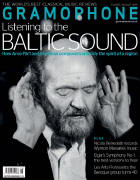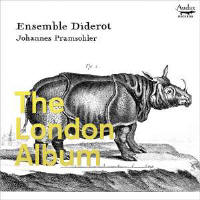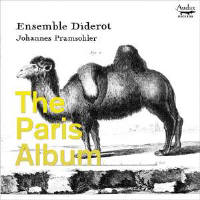Texte paru dans: / Appeared in:
|
|||||||
|
Outil de traduction (Très approximatif) |
|||||||
|
Reviewer:
Lindsay Kemp Ensemble Diderot have created a decent-sized discography already since their first release five years ago; the fact that director Johannes Pramsohler created his own label has no doubt helped. But it’s an interesting one too. Composers such as Meister, Ristori and Montanari are not the sort you arrive at casually, and these new releases reveal a similar readiness to look beyond obvious repertoire choices. As the subtitles suggest, Pramsohler has been drawing on his postgraduate research here, and ‘The Trio Sonata in England before 1680’ and ‘The Trio Sonata in France before 1700’ offer among a total of 17 pieces no fewer than eight premiere recordings. A little bit dry? Far from it. First, there is fascinating music here. On ‘The London Album’, only Robert King’s Sonetta after the Italion way seems to have got in for historical rather than musical reasons. The rest all earn their place with music full of individuality and life. Blow’s Sonata is a gem of a piece, and Purcell pushes at the compositional process as he was wont to do (sometimes, it might be said, at a cost in simple attraction). Pramsohler says he wants to show that, while English composers were certainly embracing ‘Italion ways’ (above all Corelli), foreign composers arriving in London were also happy to fall under the influence of local expressive and formal quirks. Draghi’s impressive sonata shows this, as does Johann Godfrey Keller’s, whose dissonant opening sounds as English as could be (though his delightful Ciaccona sounds like a cousin to Pachelbel’s). Gerhard Diessener’s, by contrast, sounds wholeheartedly Italian, its athletically rhetorical violin solos recalling an older species of sonata. All are tackled with bold relish by Ensemble Diderot, who dig into their strings, punch out taut trills and encourage gruff support from the bass violin. One senses a love for the theatrical over the pretty in these musicians, a suspicion confirmed by ‘The Paris Album’, where the composers all seem to be responding as much to French musical drama as to Italian instrumental brio. Ensemble Diderot respond with infectious aplomb. The standout works are the superbly firm-textured, varied and strongwilled Sonata by Jacquet de la Guerre, Clérambault’s confident La Félicité and Couperin’s La Convalescente, as ever full of effortless personality and grace. The sonatas by Brossard and Campra are less ambitious but still carry a whiff of theatre, especially the way the Diderots play them. No affected gestures and frilly cuffs here, only the dramatic moment grabbed with both hands – the Jacquet de la Guerre seems almost narrative. Only the Blow, Clérambault and Rebel overlap with London Baroque’s trio sonata series (BIS, 4/04, A/05), which offers its own repertoire rarities. The Londoners’ playing style is similarly on-the-string but with a more composed manner and open sound, so there is no need for this comparison to result in an either/or. |
|||||||





